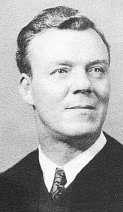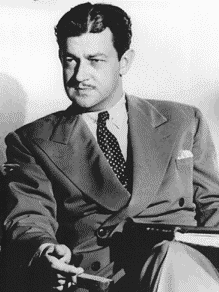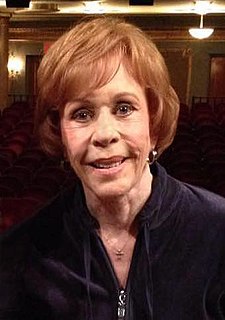A Quote by Tom Stoppard
I'm not a theoretician about playwriting, but I have a strong sense that plays have to be pitched - the scene, the line, the word - at the exact point where the audience has just the right amount of information. It's like Occam's razor.
Quote Topics
Related Quotes
And this shows that people want to be stupid and they do not want to know the truth. And it shows that something called Occam's razor is true. And Occam's razor is not a razor that men shave with but a Law, and it says: Entia non sunt multiplicanda praeter necessitatem. Which is Latin and it means: No more things should be presumed to exist than are absolutely necessary. Which means that a murder victim is usually killed by someone known to them and fairies are made out of paper and you can't talk to someone who is dead.
Before the scene, before the paragraph, even before the sentence, comes the word. Individual words and phrases are the building blocks of fiction, the genes that generate everything else. Use the right words, and your fiction can blossom. The French have a phrase for it - le mot juste - the exact right word in the exact right position.
Because your brain uses information from the areas around the blind spot to make a reasonable guess about what the blind spot would see if only it weren't blind, and then your brain fills in the scene with this information. That's right, it invents things, creates things, makes stuff up! It doesn't consult you about this, doesn't seek your approval. It just makes its best guess about the nature of the missing information and proceeds to fill in the scene.
There isn't much point arguing about the word "libertarian." It would make about as much sense to argue with an unreconstructed Stalinist about the word "democracy" - recall that they called what they'd constructed "peoples' democracies." The weird offshoot of ultra-right individualist anarchism that is called "libertarian" here happens to amount to advocacy of perhaps the worst kind of imaginable tyranny, namely unaccountable private tyranny. If they want to call that "libertarian," fine; after all, Stalin called his system "democratic." But why bother arguing about it?
I've got evil in me as much as anyone, some desires that scare me. Even if I don't give in to them, just having them scares the living bejesus out of me sometimes. I'm no saint, the way you kid about. But I've always walked the line, walked that goddamned line. It's a mean mother of a line, straight and narrow, sharp as a razor, cuts right into you when you walk it long enough. You're always bleeding on that line, and sometimes you wonder why you don't just step off and walk in the cool grass.
When I was in college at UCLA, I took a playwriting course. I was all set to be a writer. But I had to take this acting class as a theater arts major. I had to do this scene in a one-act comedy. I just said this line, and then... this laugh happened. I thought, 'Whoa. This is a really good feeling. What have I been missing?'
I suppose there is something appealing about a word that everyone uses with absolute confidence but on whose exact meaning no two people can agree. The word that I'm thinking of right now is genre, one of those French words, like crêpe, that no one can pronounce both correctly and without sounding pretentious.
I follow many tragedies around the world. At one point I [will] feel like I've accumulated an enormous amount of information, a critical mass amount of information, and I feel like acting - reacting. My manifesto has always been the same: I cannot act in the world before understanding the world. I will not move a finger. I will not come up with any ideas - nothing - until I actually understand what is happening.





































